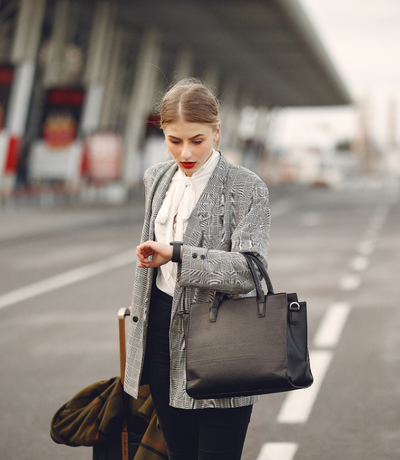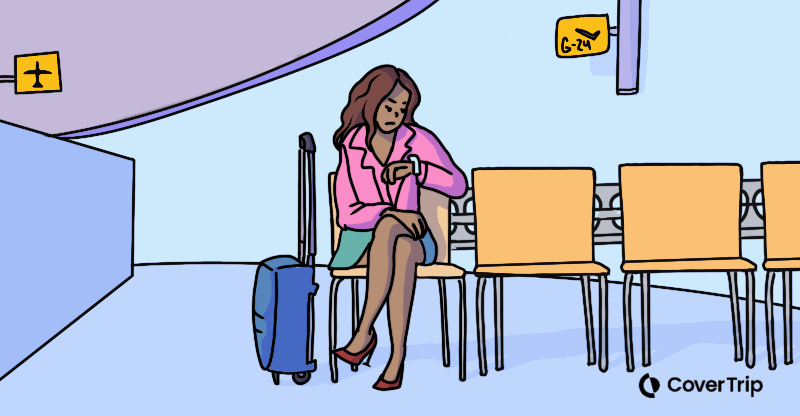How to get compensated for flight delays
2 September 2022
Thousands of travelers have been stranded at airports this summer, so much so that consumer complaints against US airlines jumped 35% in the month of June alone. Overall complaints reported are up by 270% from pre-pandemic levels even with the carriers flying fewer flights.
You’ve heard why too – shortages of pilots, flight attendants, and mechanics have wrecked the travel industry just as demand for leisure travel surged. Fewer air traffic controllers at airports have made things even worse. There’s plenty of blame to go around, but the way that airlines have responded to stranded passengers has ticked many of them off.
Returning from a weekend in Chicago, my return flight was delayed. I was already enroute to the airport with plenty of reading material and entertainment, so I continued with my original plan. After getting through security and arriving at the gate, I overheard several passengers waiting for a flight to Hawaii that had been delayed for quite a long time.
What were my options? Could I have gotten a refund or other compensation from the airline? Read on to find out.

What are the rules for delayed flights?
When a significant flight delay occurs, you are entitled to assistance and a choice between rerouting, reimbursement, or rebooking. The key word in that sentence is ‘significant’.
Because the US Department of Transportation doesn’t specifically define what significant means, each airline is allowed to determine what it is for themselves. And they define it differently―anywhere from an hour to up to four hours―and they change the definition at will.
What ‘significant’ means by airline:
- United Airlines – 1 hour
- Delta Airlines – 3 hours
- American Airlines – 4 hours
Those are just a few examples to show you the range. You’ll need to check your airline’s rules to know for sure.
The reason for flight delay matters a lot
The reason your flight is delayed makes all the difference in whether you may be able to get some sort of compensation.
For circumstances within the airline’s control
The typical contract of carriage (this outlines the agreement between you and the airline), indicates what the airline may pay to customers if they are responsible for the delay.
This where ‘significant’ matters. If your flight’s delay is considered ‘significant’ (according to the airline’s definition) and you choose not to travel, the airline may give you a refund for the unused leg of your trip. Or, the airline may cover your expenses while you wait for another flight.
Note the use of ‘may’ in those sentences. Essentially, the airline holds all the cards.
For circumstances out of the airline’s control
If your flight is delayed for circumstances beyond the airline’s control, you’re on your own. Delays caused by air traffic or weather, for example, are circumstances the airline can’t control. In these situations, the airline isn’t legally required to do anything.
My flight delay: According to the airline, the delay was caused by severe weather north of the airport so I was out of luck before I started.
How to get compensated for flight delays
To qualify for any compensation for a flight delay these must be the circumstances:
- The delay must be considered significant
- The airline has to be responsible for the delay
- You decide not to take the trip
If all of these factors apply, you are immediately owed a full cash refund―full stop. If you decide you’re flying, you lose all leverage for getting compensation.
To get compensation, you’ll need to check in with the airline’s agents (if you can find one) or call the customer service number.
My flight delay: There were no airline agents at the gate and none to be found at any of the nearby gates.
What other options are there?
If you paid for your flight with a credit card, you may have benefits for trip delays that can help with meals, hotels, etc. If you purchased travel insurance for your trip, you may also have benefits for trip delays that can help with extra costs like an overnight stay.
If you decide to try and negotiate with the airline agents, start by locating the airline’s contract of carriage so you know what the rules are before you ask for help. You can ask to be booked on another flight with another airline. You may ask for a hotel stay or a confirmed ticket on another flight.
Note: This article focuses on domestic travel only. Travelers flying between or within non-US countries may be protected by the laws of another nation.
Some relief may be on the way
Most major airlines are rolling out updated policies (video) spelling out what passengers will receive if they are stranded. Of course, the policies only apply for problems within the airline’s control like mechanical or staffing issues, not weather delays.
Damian Tysdal is the founder of CoverTrip, and is a licensed agent for travel insurance (MA 1883287). He believes travel insurance should be easier to understand, and started the first travel insurance blog in 2006.
